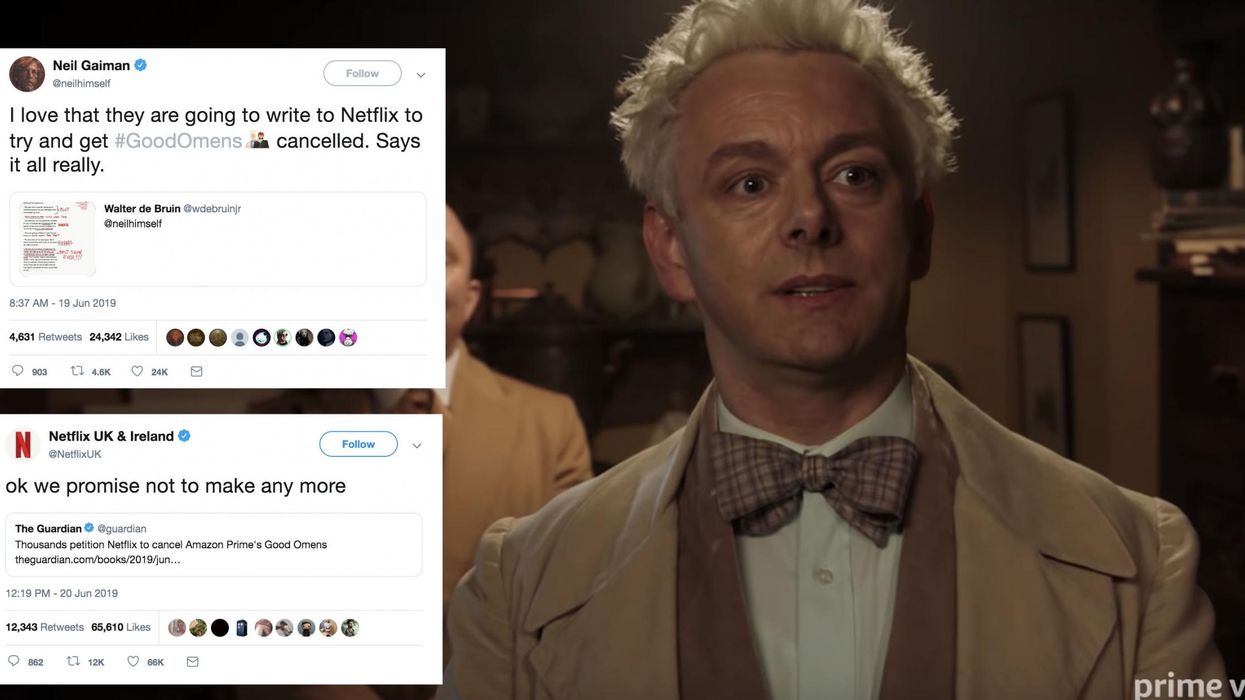Sophia Ankel
Jun 22, 2019
A Christian group started a petition calling for the cancellation of Netflix's "offensive" show Good Omens, but there's only one slight problem: the series wasn't produced by Netflix, but by Amazon Prime.
More than 20,000 supporters signed the petition which was launched by The American Society for the Defense of Tradition, Family and Property last week.
In it, they complained that Good Omens, the television series adapted from Terry Pratchett and Neil Gaiman's 1990 fantasy novel, is "another step to make satanism appear normal, light and acceptable", arguing that it is "mocking God's wisdom" because God's character is "voiced by a woman".
They also wrote that they believe "this type of video makes light of Truth, Error, Good and Evil, and destroys the barriers of horror that society still has for the devil", calling for Netflix to subsequently cancel the show.
But people quickly spotted the fundamental mistake, leading to amused Twitter posts not only by Gaiman himself (he served as the show runner on the six-part miniseries) but also Netflix and Amazon Prime, who took the opportunity to poke some fun at each other.
The group has since admitted to its mistake and have since updated the petition, claiming it was "an oversight".
The full trailer can be watched here:
HT Mashable
More: The throwaway Netflix tweet that reveals a disturbing truth
More: Amazon is selling white supremacy items aimed at children, a new study claims
Top 100
The Conversation (0)














